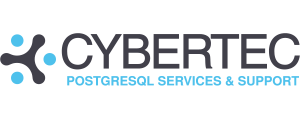Interview with EDB
Find out more about our sponsor EDB
Any views or opinions represented or expressed in this interview belong solely to the interviewee and do not necessarily represent those of the PostgreSQL Conference Europe 2025 organization, PostgreSQL Europe, or the wider PostgreSQL community, unless explicitly stated.
In which areas do you expect PostgreSQL to grow most and how does your company contribute to and benefit from that growth?
PostgreSQL is no longer “just” transactional—it’s the foundation for AI, analytics, hybrid architectures, and sovereign deployments. EDB contributes upstream to make these use cases practical at scale.
Recent work includes incremental backup to reduce storage needs and speed recovery, and major PostgreSQL 18 features: OAuth integration with enterprise identity systems, new index access methods for vector and analytics workloads, and dynamic extension loading for cloud-native environments. These advances aren’t niche—they enable high-performance, secure systems across finance, public sector, and beyond. The same engineering powers EDB Postgres AI, our unified platform for transactional, analytical, and AI workloads, helping enterprises replace siloed databases with one open Postgres foundation they can run anywhere with confidence.
The same engineering fuels EDB Postgres AI, our unified platform for transactional, analytical, and AI workloads. By delivering these capabilities upstream and integrating them into the platform, we help enterprises replace siloed databases with a single, open-source Postgres foundation they can run anytime, anywhere with confidence.
Which of your company's contributions to the PostgreSQL Project (code/community/conference/sponsorship) are you most proud of?
Our proudest moments come when engineering and community meet. In PG17, EDB engineers introduced pg_createsubscriber, which makes creating logical replicas much easier and dramatically faste. We also delivered incremental backup to cut storage costs and simplify recovery, and expanded SQL/JSON functionality so developers can query semi-structured data directly in Postgres.
In PG18, we’re especially proud of enabling OAuth authentication, a major step for enterprises integrating Postgres with modern identity systems. We also contributed index access method enablement for new vector and analytics-focused indexes, NUMA-aware performance improvements, and key security enhancements.
Beyond code, our team advances surrounding projects like CloudNativePG, pgAdmin, and Barman, while mentoring new patch authors, delivering sessions at PGConf EU, and advocating globally. It’s the blend of upstream engineering and community leadership that makes these contributions meaningful.
What feature in the last PostgreSQL version benefits your company most?
In PostgreSQL 18, the standout feature for us is native OAuth support. This enables Postgres to integrate directly with enterprise identity providers like Okta, Keycloak, or Microsoft Entra, giving customers a standards-based way to centralize authentication and strengthen security. Before this release, enterprises often had to rely on custom solutions or workarounds to align Postgres with modern identity systems. Now, it’s built into core Postgres.
For EDB customers, OAuth ensures smoother integration with existing security architectures, reducing risk and operational overhead. It’s especially valuable in highly regulated industries, where compliance depends on strict access controls and auditable identity management. Within EDB Postgres AI, OAuth reinforces our promise of secure, enterprise-ready Postgres everywhere—from cloud-native deployments to sovereign, on-premises environments. For the community, it sets a new security baseline, giving every Postgres user access to enterprise-grade authentication.
What is your PostgreSQL centered product?
EDB Postgres AI is the first open, enterprise-grade sovereign data and AI platform built on PostgreSQL. It unifies four core capabilities: A fully hardened Database for mission-critical workloads; Hybrid Management for unified control across environments; AI Factory for building and running GenAI and agentic AI applications; and Analytics Accelerator for high-speed queries on operational data.
EDB Postgres AI integrates these capabilities in one platform with enterprise features pre-built: always-on high availability, incremental backup, advanced workload observability, and built-in compliance controls. This means our customers can run transactions, analytics, and AI pipelines side-by-side without stitching together separate tools or moving data into proprietary systems.
The result is a single governed environment where organizations can scale Postgres to billions of transactions, train and serve AI models directly on live data, and meet strict sovereignty requirements without sacrificing performance or control.
Why does your company attend PostgreSQL Conference Europe?
PGConf EU brings together one of the most technically skilled, globally diverse communities in open source. We attend because it’s where deep product conversations, real-world problem solving, and Postgres roadmap thinking all happen in one place.
Our engineers, architects, and advocates use the time to collaborate with other contributors, share what we’ve learned, and hear firsthand what’s driving the next wave of Postgres adoption.
As the largest contributor to Postgres, we take part in PGConfEU to stay close to the work and the people shaping the project’s future. Our team is active across the conference, presenting talks, mentoring newer contributors, and engaging in the discussions that push the technology forward. For us, it’s about being present where the community builds, debates, and decides what comes next.
















